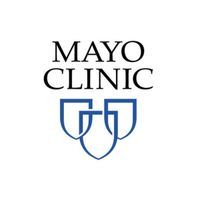
Implementing New Diagnostic Criteria of Limbic-Predominant Amnestic Neurodegenerative Syndrome in Clinical Practice: Nick Corriveau-Lecavalier, PhD & David T. Jones, MD

A duo of experts from Mayo Clinic discussed how recent developments in clinical criteria for diagnosing limbic-predominant amnestic neurodegenerative syndrome allow for more accurate differentiation from Alzheimer disease. [WATCH TIME: 9 minutes]
WATCH TIME: 9 minutes
"We're trying to show that in old age, memory loss is not unequivocally caused by Alzheimer disease. We can look for other causes."
Previously, the hallmarks of the limbic-predominant amnestic neurodegenerative syndrome (LANS), a memory-loss syndrome in older adults that can often be mistaken for Alzheimer disease (AD), could only be confirmed by examination of brain tissue after a patient's death. Recently, experts at
Researchers used data from more than 200 patients in databases from the Mayo Clinic Alzheimer's Disease Research Center, the Mayo Clinic Study of Aging, and the Alzheimer's Disease Neuroimaging Initiative to develop and validate the criteria. Overall, the established criteria can assist providers to diagnose LANS in a more timely fashion, allowing those living with memory loss opportunities for available treatment, as well as expanding the opportunities for research to further highlight the characteristics of the disease.
Lead author Nick Corriveau-Lecavalier, PhD, a clinical fellow in adult neuropsychology at Mayo Clinic, and senior author David T. Jones, MD, a behavioral neurologist at Mayo Clinic, recently sat down with NeurologyLive® in an interview to discuss the core features required for diagnosing LANS. The duo of experts also talked about how the new criteria differentiate LANS from AD. Furthermore, Jones and Corriveau-Lecavalier spoke about the implications of this new diagnostic framework for treatment approaches in memory-related conditions in older adults.
REFERENCES
1. Corriveau-Lecavalier N, Botha H, Graff-Radford J, et al. Clinical criteria for a limbic-predominant amnestic neurodegenerative syndrome. Brain Commun. 2024;6(4). doi:10.1093/braincomms/fcae183.
2. Mayo Clinic scientists define new type of memory loss in older adults. News Release. Mayo Clinic. Published July 16, 2024. Accessed July 17, 2024. https://newsnetwork.mayoclinic.org/discussion/mayo-clinic-scientists-define-new-type-of-memory-loss-in-older-adults/
Newsletter
Keep your finger on the pulse of neurology—subscribe to NeurologyLive for expert interviews, new data, and breakthrough treatment updates.










